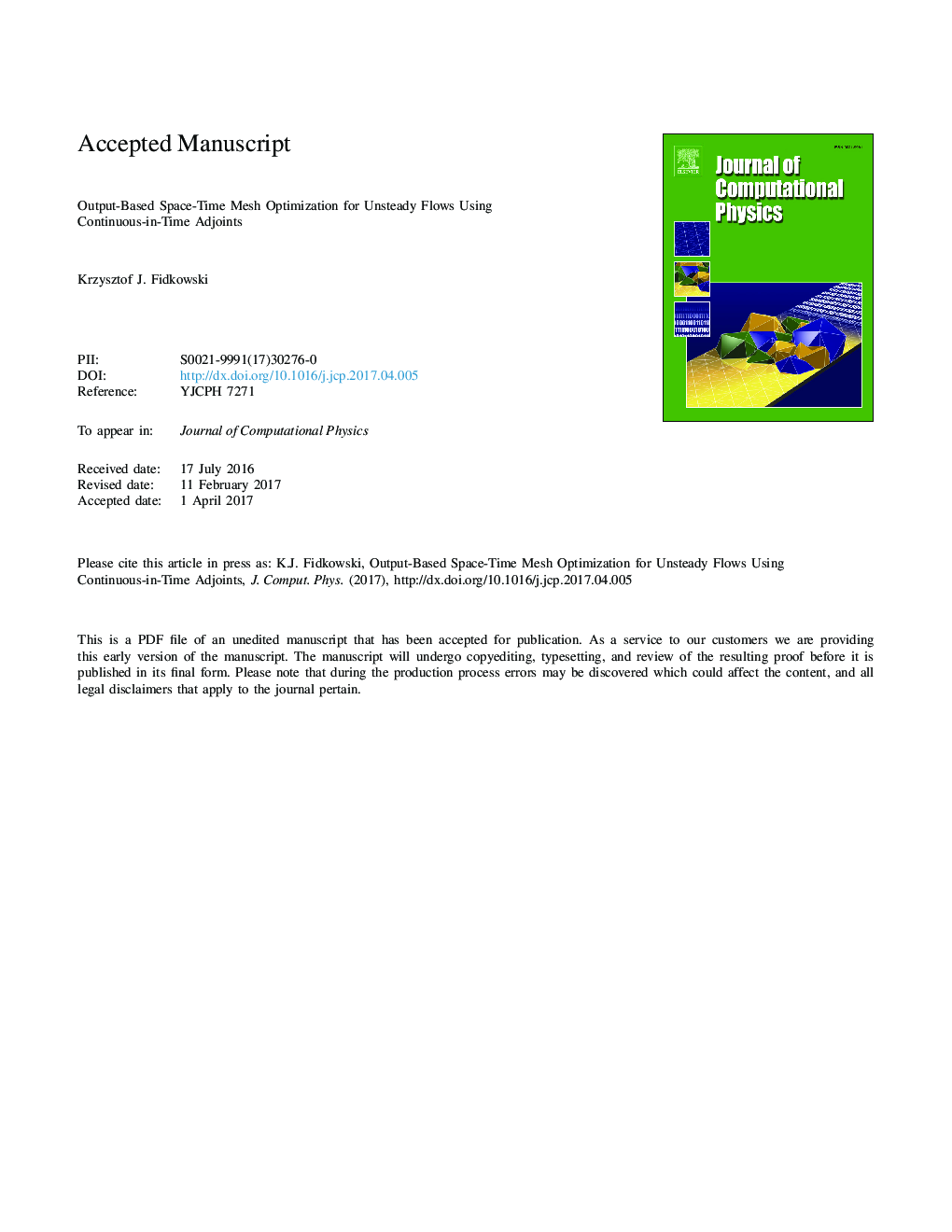| Article ID | Journal | Published Year | Pages | File Type |
|---|---|---|---|---|
| 4967377 | Journal of Computational Physics | 2017 | 24 Pages |
Abstract
We present a method for estimating spatial and temporal numerical errors in scalar outputs of unsteady fluid dynamics simulations using continuous-in-time adjoint solutions and general time-integration methods. A continuous formulation decouples the primal and adjoint temporal discretizations and allows for the use of standard time-integration schemes for the adjoint. For non-variational methods, a scheme-agnostic temporal reconstruction of the primal and adjoint solutions replaces the functional representation in between time nodes. The output error is still estimated through an adjoint-weighted residual, which takes the form of a space-time integral. Separate temporal and spatial error estimates arise from projection of the adjoint to semi-refined spaces. These estimates drive adaptive refinement, which first requires a calculation of the appropriate cost distribution between the spatial and temporal discretizations. The adaptive mechanics consist of uniform temporal refinement/coarsening, and several localized spatial refinements: order adaptation, hanging-node refinement, and unstructured mesh optimization. Results for scalar advection-diffusion and for the compressible Navier-Stokes equations demonstrate the effectivity of the error estimates, the efficiency of the adaptive refinement, independence of optimized meshes to the starting mesh, and the importance of high-order spatial and temporal approximations.
Related Topics
Physical Sciences and Engineering
Computer Science
Computer Science Applications
Authors
Krzysztof J. Fidkowski,
